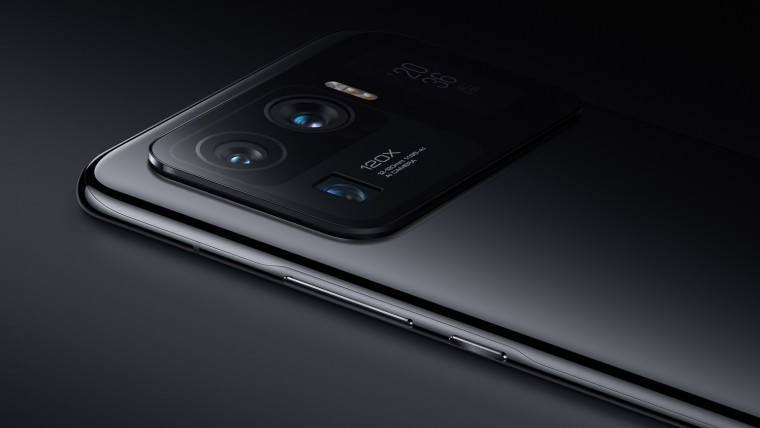
Just under two months after the global launch of the Xiaomi Mi 11 series, the Chinese company today announced an expansion of the lineup with a number of new devices. These include the Mi 11 Lite, but for lovers of high-end hardware, the Mi 11 Ultra is the one that gets the most attention.
Xiaomi has gone all-out by packing as many impressive numbers into the Mi 11 Ultra as it could. First, there's the triple camera setup, which consists of wide, ultra-wide, and telephoto cameras. The main camera uses a 50MP Samsung GN2 sensor with quad-pixel binning. Xiaomi says it can capture detailed images with as little as 0.02 lux of light and it's also the company's first phone with a 64-zone depth map thanks to the time-of-flight sensor, which offers faster and more accurate focus.
The rest of the setup is also impressive, because Xiaomi is using the Sony IMX586 48MP sensor for both the ultra-wide and telephoto cameras. That's the same sensor many phones used as their primary camera a couple of years ago, so it's certainly an interesting choice. Additionally, the telephoto camera offers 5x optical zoom, 10x hybrid zoom, and 120x digital zoom.

Next to the camera setup, Xiaomi has added a 1.1-inch AMOLED display with a 294x126 resolution and touch support. This is used as an always-on display, showing the time and notifications, and it can also serve as a small viewfinder for taking selfies with the rear cameras.

Turning around to the main display, it's a 6.81-inch panel with Quad HD+ resolution (3200x1440) and 120Hz refresh rate, all the same as the regular Mi 11. The big difference here is that it has an upgraded peak brightness of 1,700 nits. It also supports 1.07 billion colors and comes with support for both Dolby Vision and HDR10+.
For sound, there's a dual-speaker setup similar to the Mi 11, but now the bottom speaker has been upgraded with a custom 1216P speaker unit, which offers up to 0.8mm amplitude, the loudest in a smartphone.
There are even more impressive specs here. The battery has been increased from 4,600mAh in the Mi 11 to 5,000mAh, and it supports even faster charging - it can charge at 67W, both via USB Type-C and wirelessly. It also offers 10W reverse wireless charging. Of course, at the heart of the phone is still the Qualcomm Snapdragon 888, but the RAM has been increased to 12GB, and there's also 256GB of internal storage.
The Xiaomi Mi 11 Ultra comes in a ceramic body and is available in either black or white color options for €1,199.
For the more budget-conscious, Xiaomi also announced the Mi 11i, a slightly more affordable version of the Mi 11. It still has a Snapdragon 888, 8GB of LPDDR5 RAM, and up to 256GB of UFS 3.1 storage, but some sacrifices have been made. It has a 6.67-inch Full HD+ (2400x1080) display with a 120Hz refresh rate, and a dual-speaker stereo setup. It also has a triple camera setup headlined by a 108MP camera with 9-in-1 pixel binning, plus an 8MP ultra-wide camera and a 5MP "telemacro" lens.

Other sacrifices include a slightly smaller battery at 4,520mAh, as well as slower 33W charging. It also doesn't support wireless charging. The fingerprint sensor has also been moved from under the display to the phone's frame.
The Xiaomi Mi 11i starts at €649 with 128GB of storage, or €699 for 256GB, which is €100 below the Mi 11's launch price. It will be available soon in three color options: Celestial Silver, Frosty White, and Cosmic Black.

















2 Comments - Add comment